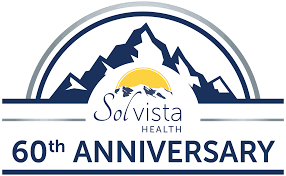The Paramedic is responsible for the provision and oversight of high- quality care for patients within the Withdrawal Management Unit (WMU) and Acute Treatment Unit (ATU). This role involves triage, assessment, treatment, medical care, and ongoing evaluation of patients experiencing psychiatric crises or substance withdrawal. The Paramedic will collaborate closely within an interdisciplinary team and work under the supervision of Registered Nurses (RNs) and Nurse Practitioners (NPs). The Paramedic may frequently work independently, providing care in situations where an RN is not present, and will take initiative in managing unit workflow to ensure the safety and well-being of patients. This position requires strong clinical skills, sound judgment, and the ability to respond to a variety of complex situations in a fast-paced environment.
Essential Duties/Responsibilities
- Patient Assessment and Triage: Conduct thorough assessments and triage of patients upon admission, identifying immediate medical and psychological needs.
- Direct Patient Care: Administer appropriate medical interventions and treatments as per NREMT standards and facility protocols, ensuring adherence to safety and clinical guidelines.
- Interdisciplinary Collaboration: Work as part of a multidisciplinary team, including RNs, NPs, psychiatrists, social workers, and other healthcare professionals, to develop and implement individualized care plans for patients.
- Unit Workflow Management: Assist in overseeing unit workflow to ensure efficient operation, including patient flow, task delegation, and resource management.
- Compliance and Documentation: Maintain accurate and up-to-date documentation of patient care activities, ensuring compliance with HIPAA regulations and all facility policies.
- Patient Liaison: Serve as the primary liaison between patients, their families, staff, and other members of the care team, ensuring clear communication and understanding of treatment goals.
- Monitoring and Evaluation: Continuously monitor patient conditions, documenting vital signs, symptoms, and responses to treatments, and adjusting care plans as necessary in collaboration with the team.
- Crisis Intervention: Utilize de-escalation techniques and provide crisis intervention to ensure the safety and well-being of patients and staff during emergencies.
- Education and Support: Provide education and support to patients and their families regarding treatment processes, coping strategies, and available resources.
- Compliance and Documentation: Maintain accurate and up-to-date documentation of patient care activities and ensure compliance with all regulatory and facility policies.
- Continual Learning: Stay current with developments in psychiatric care and substance withdrawal management, participating in ongoing training and professional development opportunities.
Supervisory Duties (if any)
Job Qualifications
Knowledge, Skills, and Ability:
- Strong assessment and critical thinking skills.
- Excellent communication and interpersonal abilities.
- Ability to work effectively in a fast-paced, team-oriented environment.
- Knowledge of psychiatric disorders, substance use disorders, and withdrawal management protocols.
Education or Formal Training:
High school diploma or equivalent; completion of a Paramedic training program accredited by a recognized institution.
Current NREMT certification and state licensure as a Paramedic. Current BLS/CPR. Additional certifications in mental health or substance use treatment preferred.
Experience
Minimum of 2 years experience as a Paramedic, with a focus on emergency medical services; experience in psychiatric care or withdrawal management preferred.
Working Conditions and Other Conditions of Employment
Working Environment:
This job operates in a fast-paced, professional office environment and routinely requires the use of standard office equipment such as computers, phones, photocopiers. The position may require travel to conferences, meetings and branch locations on a regular or intermittent basis. Work may involve moderate exposure to unusual elements, such as extreme temperatures, dirt, dust, fumes, smoke, unpleasant odors, and/or loud noises. In the health center environment, there is potential for contact with blood-borne pathogens and communicable diseases, as well as potential for contact with dissatisfied or abusive individuals. There could be interaction with persons who are mentally ill, disabled, elderly and emotionally upset.
Physical Activities:
These are representative of those which must be met to successfully perform the essential functions of this job.
This is a largely sedentary role but can involve standing or sitting for extended periods of time, bending at the waist, and using hands and fingers to handle and file papers or operate assigned equipment. While performing the duties of this job, the employee is regularly required to talk or hear. Specific vision abilities required by this job include close vision, distance vision, color vision, and ability to adjust focus. Employee may also have to lift 10 to 25 lbs. unassisted.
Conditions of Employment:
- Annual TB, federally required drug screening, and Influenza vaccination or compliance with policy and procedure.
- Required possession of a valid state driver's license.
- Successful candidate must submit to and pass, post-offer drug screen.


